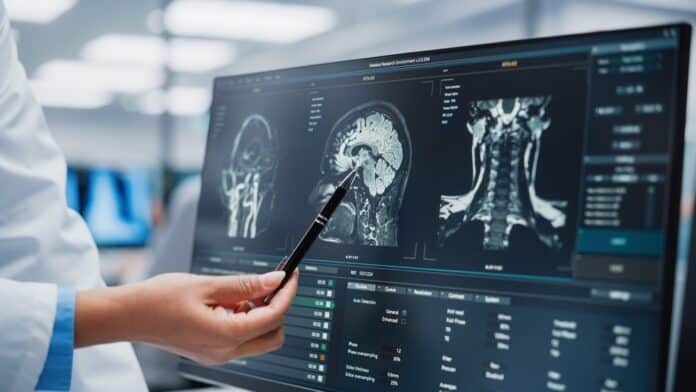
We can see the effects of time by the wrinkles on our skin, graying of our hair, and slowed movement of our bodies.
But the changes in our brain can be much less visible and begin long before we have any noticeable symptoms.
Everybody’s brain changes as they age, but not everybody experiences the same changes or to the same extent.
Some changes are normal and expected, while others may signify a more serious problem. When you know what to expect and what warning signs to look out for, you can be better prepared to identify any problems early on and take steps to keep your brain healthy as you age.
Age-related cognitive decline can be categorized into four levels or stages:
No Cognitive Impairment
A normal, healthy adult won’t experience any noticeable cognitive decline, at least until around age 60.
Things like processing time and reaction speed may decline much sooner, but this generally won’t significantly impact everyday life.
Other cognitive abilities, such as vocabulary, general knowledge, and memory recall, should remain stable or even improve with age.
Subjective Cognitive Impairment
In your 60s or 70s, you may notice small and subtle changes in your mental functions.
Learning new things or remembering names and faces may take a little longer.
You may also have more difficulty keeping track of things like where you left your keys or glasses.
This may be embarrassing or frustrating at times, but as long as it isn’t interfering with your daily life, it’s probably normal and not anything to worry about.
Mild Cognitive Impairment
For people who experience more significant cognitive decline, it typically begins as mild cognitive impairment.
This can involve more noticeable memory problems and difficulty with other mental functions like decision-making, planning, communicating, and organization.
These issues may be noticed by the people who know you well, but they don’t typically interfere with your ability to live independently.
However, people with mild cognitive impairment are at an increased risk of developing Alzheimer’s disease.
Dementia
Dementia is a general term that describes a decline in mental ability that’s severe enough to interfere with everyday life.
If cognitive decline has progressed this far, it means that you can no longer take care of yourself or live independently. This could involve things like forgetting how to cook or dress or losing the ability to recognize loved ones.
Symptoms like these are not normal. If your forgetfulness and confusion are starting to interfere with your life, it’s important to talk to a doctor.
Early diagnosis and treatment of Alzheimer’s disease or dementia can improve the quality of life and slow the progression of the disease.
It may also be a good idea to talk to your doctor about your risk factors before any cognitive decline begins. This way, you can make lifestyle changes or take other steps to keep your brain healthy as you age.


















